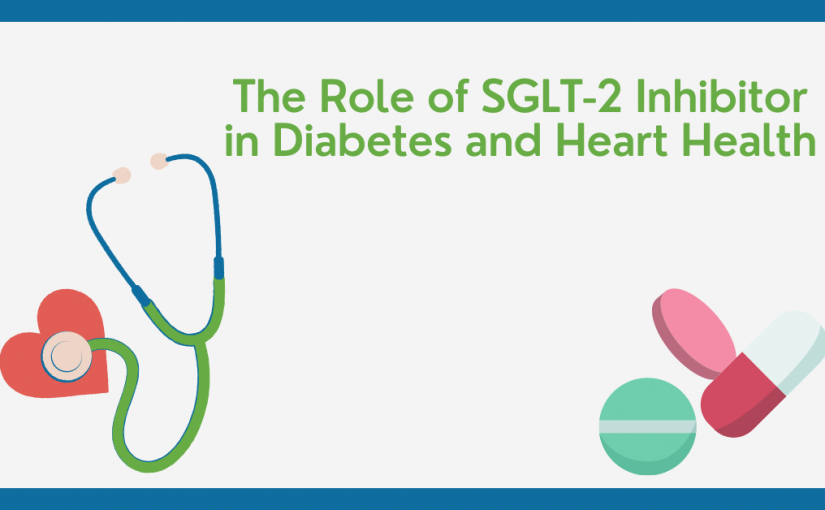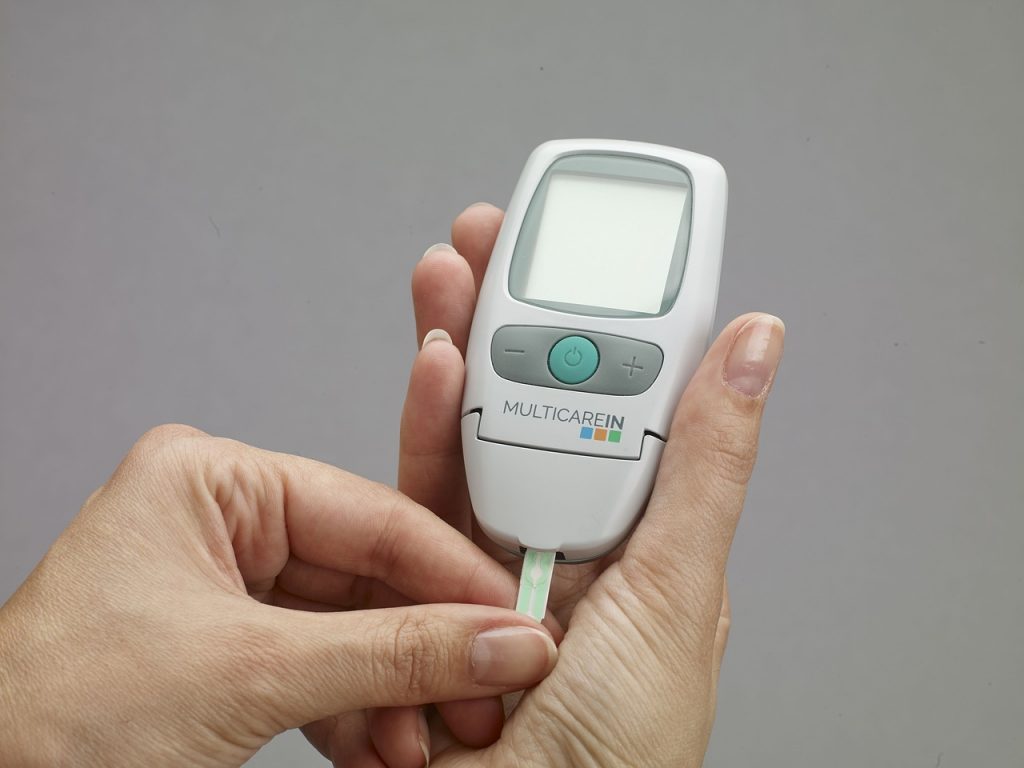The Role of SGLT-2 Inhibitor in Diabetes and Heart Health
Some of the most common and closely related diseases in the world are diabetes and heart disease. Heart-related issues such as heart failure, coronary artery disease, and stroke are more likely to occur in people with diabetes. SGLT-2 inhibitors are a novel class of drugs that have gained popularity recently for both treating type 2 diabetes and enhancing heart health.
We will examine the function, advantages, and possible long-term health effects of SGLT-2 inhibitors in the treatment of diabetes and heart disease in this blog.
Understanding SGLT-2 Inhibitors
A class of drugs known as sodium-glucose co-transporter-2 (SGLT-2) inhibitors is intended to help people with type 2 diabetes control their blood sugar levels. These medications function by inhibiting the kidney’s SGLT-2 protein, which is in charge of reabsorbing glucose into the blood. SGLT-2 inhibitors reduce blood sugar levels by increasing the excretion of glucose through urine by blocking this protein.
SGLT-2 inhibitors that are frequently administered include Jardiance (Empagliflozin), Farxiga (Dapagliflozin), and Invokana (Canagliflozin)
How SGLT-2 Inhibitors Help Manage Diabetes
The primary function of SGLT-2 inhibitors is to manage blood sugar levels in people with type 2 diabetes. These drugs decrease the total amount of glucose in the bloodstream by decreasing the kidneys’ ability to reabsorb glucose. The mechanisms behind this process include:
- Glucose that would typically be reabsorbed into the blood is instead eliminated in the urine by inhibiting the SGLT-2 transporter.
- Over time, this enhanced glucose excretion lowers blood sugar levels, assisting diabetics in avoiding hyperglycemia, or elevated blood sugar.
- Since glucose is eliminated through the urine, it lowers the overall quantity of glucose in the body, which helps some patients lose weight. This is a secondary advantage for people with type 2 diabetes because being overweight can make it harder to maintain blood sugar levels.
- SGLT-2 inhibitors are a useful therapeutic choice for people with type 2 diabetes who also have high blood pressure because they also help lower blood pressure.
SGLT-2 Inhibitors & Cardiovascular Health
Although SGLT-2 inhibitors were initially developed to treat diabetes, studies have revealed that they have important cardiovascular advantages, particularly for diabetics who are at a high risk of heart disease. These drugs have been shown to improve heart health in a number of ways:
- Lowering the Heart Failure Risk: SGLT-2 inhibitors’ capacity to lower heart failure risk. Cardiac failure occurs when the heart is unable to pump blood effectively. Heart failure is more likely to occur in people with diabetes, and SGLT-2 inhibitors have been demonstrated to lower this risk. Clinical trials have shown that empagliflozin and dapagliflozin can lower the risk of heart failure hospitalization and cardiovascular death.
- Keeping serious Cardiovascular Events Away: According to studies, SGLT-2 inhibitors also provide protection against serious cardiovascular events such as heart attacks, strokes, and heart disease-related deaths. In individuals with type 2 diabetes and established heart disease, empagliflozin decreased the risk of major cardiovascular events by around 14% in addition to improving blood sugar control, according to research from the EMPA-REG OUTCOME trial. In individuals with type 2 diabetes and high cardiovascular risk, canagliflozin was reported to reduce the incidence of heart attack, stroke, and cardiovascular death in the CANVAS program.
- Reduced Weight and Enhanced Lipid Profile: Modest weight loss and improved lipid profiles (triglyceride and cholesterol levels) are two benefits of SGLT-2 inhibitors that are crucial in lowering the risk of heart disease. Weight loss brought on by SGLT-2 inhibitors can enhance cardiovascular health and lessen cardiac strain. By lowering plaque accumulation in the arteries, improvements in lipid profiles can lower the risk of atherosclerosis, or the narrowing and hardening of the arteries, and the cardiovascular problems that go along with it.
- Heart and Kidney Protection: Since kidney illness is also highly prevalent in diabetics and can result in heart problems, SGLT-2 inhibitors have demonstrated renal protective benefits, which are very significant. One significant risk factor for cardiovascular disease is chronic kidney disease (CKD). By lowering blood pressure and preventing protein leakage into the urine (albuminuria), which are both essential for maintaining kidney function, SGLT-2 inhibitors decrease the progression of kidney disease. According to studies, preventing kidney injury can have a direct positive impact on heart health since healthy kidneys reduce the strain on the heart by regulating blood pressure and fluid balance.
Additional Benefits Beyond Blood Sugar Control
People with type 2 diabetes who have a high risk of cardiovascular disease generally administer SGLT-2 inhibitors. They are especially helpful for people who:
- Patients have a history of cardiac failure or heart disease
- Are more likely to have cardiac failure.
- Have existing chronic renal disease.
- Fight with obesity or weight loss
- Additionally, because SGLT-2 inhibitors have been shown to be effective in lowering blood sugar levels, they may be administered to patients who have not been able to achieve acceptable blood sugar control with conventional diabetic treatments.
Safety and Side Effects of SGLT-2 Inhibitors
Despite their many advantages, SGLT-2 inhibitors might have adverse effects. Among the possible Side effects are:
- These drugs can raise the risk of fungal or urinary tract infections because they increase the amount of glucose discharged in the urine.
- Fluid loss with SGLT-2 inhibitors may result in low blood pressure or dehydration.
- There is a risk of diabetic ketoacidosis (DKA), a dangerous condition when the body creates high levels of acids called ketones. Even those with normal blood sugar levels may develop this disease.
Some potential precautions to follow while using SGLT-2 inhibitors are:
- Regularly check kidney function, particularly during the first few months of medication. Because these drugs may not be safe or efficacious, patients with severe renal impairment (eGFR < 30 mL/min/1.73 m2) might not be good candidates for them.
- Patients should make sure they drink plenty of water, especially in hot weather or after strenuous exercise. Low blood pressure (hypotension), lightheadedness, or fainting can result from dehydration.
- SGLT-2 inhibitors raise the risk of vaginal infections (such as yeast infections) and urinary tract infections (UTIs) by increasing the excretion of glucose through urine.
- Due to their diuretic action (increased urination), SGLT-2 inhibitors can drop blood pressure. If you are currently using antihypertensive drugs, you may be at risk for hypotension (low blood pressure), which can result in lightheadedness and dizziness.
Conclusion:
The approach to the treatment of heart disease and type 2 diabetes has been completely transformed by SGLT-2 inhibitors. They are a potent tool in lowering the risks of heart failure and major cardiovascular events in diabetes patients because they lower blood sugar levels, encourage weight loss, improve blood pressure, and provide substantial cardiovascular and kidney benefits.
Millions of patients throughout the world may benefit from SGLT-2 inhibitors as they become a mainstay in the treatment of diabetes and heart disease as more study is done to fully understand their potential.
Consult your doctor if SGLT-2 inhibitors are a good option for your treatment plan if you or a loved one has diabetes and is at risk for heart disease. It is considerably easier to manage diabetes and heart health with the correct drugs, lifestyle modifications, and consistent monitoring.
FAQ’s
One should not take SGLT-2 inhibitors if they have a severe renal impairment (eGFR < 30 mL/min/1.73 m²) are either nursing a baby or pregnant, possess a history of DKA, or diabetic ketoacidosis, are younger than 18, possess a history of severe vaginal or urinary tract infections, are found to be allergic to any of the ingredients in SGLT-2 inhibitors.
SGLT-2 inhibitors do have the potential to aid in weight loss. They lower blood sugar levels by increasing the excretion of glucose through urine, which can result in a slight decrease in body weight, usually 2-4 kg (4-9 lbs) on average. The main cause of this weight loss is the calorie loss from the excretion of glucose. It’s not a drug for weight loss, though, and individual outcomes may differ.
Indeed, SGLT-2 inhibitors can lower the chance of developing heart disease. They have been demonstrated to enhance heart health in those with diabetes or high cardiovascular risk, decrease the risk of heart failure, and lessen the incidence of serious cardiovascular events (such as heart attacks and strokes)
For those without diabetes, SGLT-2 inhibitors can be useful, especially in the treatment of chronic renal disease and heart failure. Even in those without diabetes, studies have shown that they can slow the progression of renal disease, improve heart function, and lower the risk of hospitalization for heart failure. However, unless they have certain medical issues, they are not usually administered to non-diabetic individuals.
References:
SGLT2 Inhibitors: Cardiovascular Benefits Beyond HbA1c—Translating Evidence into Practice – PMC
www.completecardiologycare.com
For more Informational Blogs, click here





